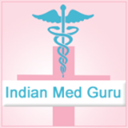Lymphoma is the cancer of our lymph nodes, the part of human immune system. There are many types of lymphoma, one being Hodgkin, and the rest called non-Hodgkin lymphomas. Non-Hodgkin lymphomas occur when the T cell or B cell, a type of white blood cells, grow immaturely and become abnormal. The cell keeps on dividing incessantly, producing more and more abnormal cells. These atypical cells can spread to almost any part of the body. Most of the time, doctors are unable o determine why a person gets non-Hodgkin lymphoma. Those with a weakened immune system or having certain types of infections are at an increased risk of suffering from the disease.
Lymphoma is diagnosed with physical exam, chest x-ray, blood tests and biopsy. Its treatments include targeted therapy, chemotherapy, radiation therapy, biological therapy, or any therapy to remove proteins from the blood. Targeted therapy makes use of substances to attack cancer cells without harming the nearby normal cells. Biologic therapy boosts the body's ability to fight cancer. Ultrasound scans can show the Lymph node tumors. Lymphoma is not a type of cancer routinely screened by the healthy population. The ailment is investigated when a patient show signs and symptoms like :
- Fever
- Soaking night sweats
- Unexplained weight loss
- Continuous weakness and tiredness
- Coughing, troubled breathing or chest pain
- Pain, swelling or a feeling of fullness in the abdomen
- Swollen yet painless lymph nodes in the armpits, groin, or neck.
The doctor will start investigating lymphoma by talking about your medical history, followed by physical examination during which, the doctor will check for the signs of infection near lymph nodes, as most cases of swelling can be explained by it. If and when lymphoma is suspected, the diagnosis can be definitively confirmed with biopsy, which involves laboratory examination of lymph tissue, and act as a guide to prognosis and treatment. The most common biopsy procedures are,
- Excisional – the skin is cut to remove the entire lymph node for analysis
- Incisional - only a part of a large suspected lymph tumor is removed.
The operations, depending on the location to be operated upon, will involve use of local or general anesthetic. Some tests like blood tests may be performed to check the number of white blood cells. Once lymphoma has been confirmed from biopsy, further tests are performed to determine the stage of cancer, to check whether it has spread. The testing process enables the oncology team to understand the type and stage of cancer. They use staging systems for every cancer type. In lymphoma, there are four stages :
- Stage I - when the tumor is localized, i.e. confined to one area
- Stage II – the tumor has spread limited
- Stage III - regional spread to either side of the diaphragm, or to another area or organ
- Stage IV - the tumor has spread beyond the lymphatic system to other body parts.
The stage is further described depending on the particular symptoms present, with A or B added to the number. B denotes that the cancer is more advanced than A.
- Unexplained weight loss of more than 10% over the previous 6 months
- Unexplained fever of at least 100.4°F (38°C)
- Drenching night sweats.
Unknown, unidentified risk factors make the prevention of lymphoma is not unfeasible. Infection of HIV or Epstein-Barr virus is the only known cause of the disease. Several treatment options are used to fight the disease, most of which are common for other cancers.
Statistics cannot always predict the success of an individuals’ treatment design, as it also depends on numerous factors, including the stage of the cancer, the but figures show good overall success rates in defeating lymphoma:
- Over two-third of the patients survive for five years
- This five-year rate is even higher for the rarer Hodgkin's lymphoma, at over 85%.
The following treatments are open to patients with:
- Chemotherapy
- Radiotherapy
- Stem cell transplant
- Surgery for particular cases
- Immunological therapy.
Specific chemo drug combinations are usually administered. Chemotherapy is often combined with other options such as radiotherapy and immune therapy. Radiation therapy involves directing a focused high-energy X-ray beam onto the tumors destroying the cells. Immunotherapy makes use of biological drugs to boost the immune system. Certain lymphoma cases can also be treated with stem cell transplantation.
Treatment and recovery of any ailment largely depends on the stage, diagnosis and healthcare offered. So much is less when it comes to fighting cancer. An important point here is receiving treatment under experts. Indian Medguru Consultants is a medical tourism company looking after international patients’ needs in finding a reliable cancer care service in India. The team with its ties to best oncology centers in India is the single door destination for a cancer-free life.





